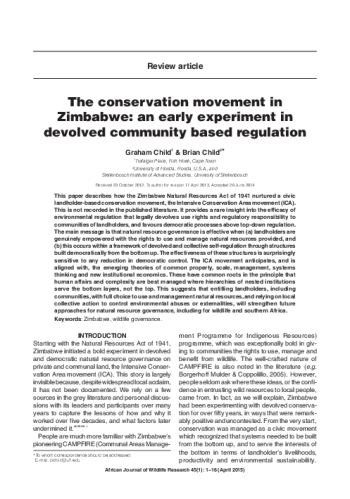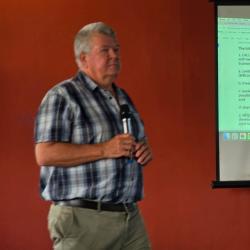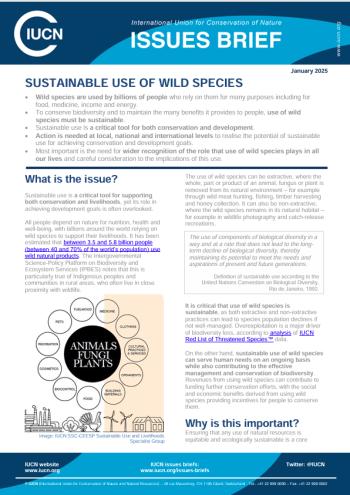
The conservation movement in Zimbabwe
This paper describes how the Zimbabwe Natural Resources Act of 1941 nurtured a civic landholder-based conservation movement, the Intensive Conservation Area movement (ICA)... It provides a rare insight into the efficacy of environmental regulation that legally devolves use rights and regulatory responsibility to communities of landholders, and favours democratic processes above top-down regulation. The main message is that natural resource governance is effective when (a) landholders are genuinely empowered with the rights to use and manage natural resources provided, and (b) this occurs within a framework of devolved and collective self-regulation through structures built democratically from the bottom up.
Graham Child & Brian Child. (2015).The conservation movement in Zimbabwe: An early experiment in devolved community based regulation. African Journal of Wildlife Research 45(1): 1–16.
-

-
Graham Child
We support the free flow of information. Please share:
Form coming soon
Related Content
-

-

Review of African Social and Economic Development Volume 1
ByIbrahim Bàbátúndé Anobaarrow_forward2024 -

Economic Analysis: Climate Change and Wildlife Utilization on Private Land
ByJackson OtienoEdwin Muchapondwaarrow_forward2015
Get updates by email
Through impactful research, stakeholder engagement, and professional development, AWEI is supporting the wildlife economy across Africa. Please subscribe for occasional updates on our work and forthcoming events.
Sign up for a quarterly dose of AWEI insights
In a complex and changing world, AWEI generates strategic ideas, conducts independent analysis on wildlife economies, and collaborates with global scholar-practitioners to provide training and expertise for biodiversity conservation, climate resilience, and inclusive economic opportunities in Africa.
